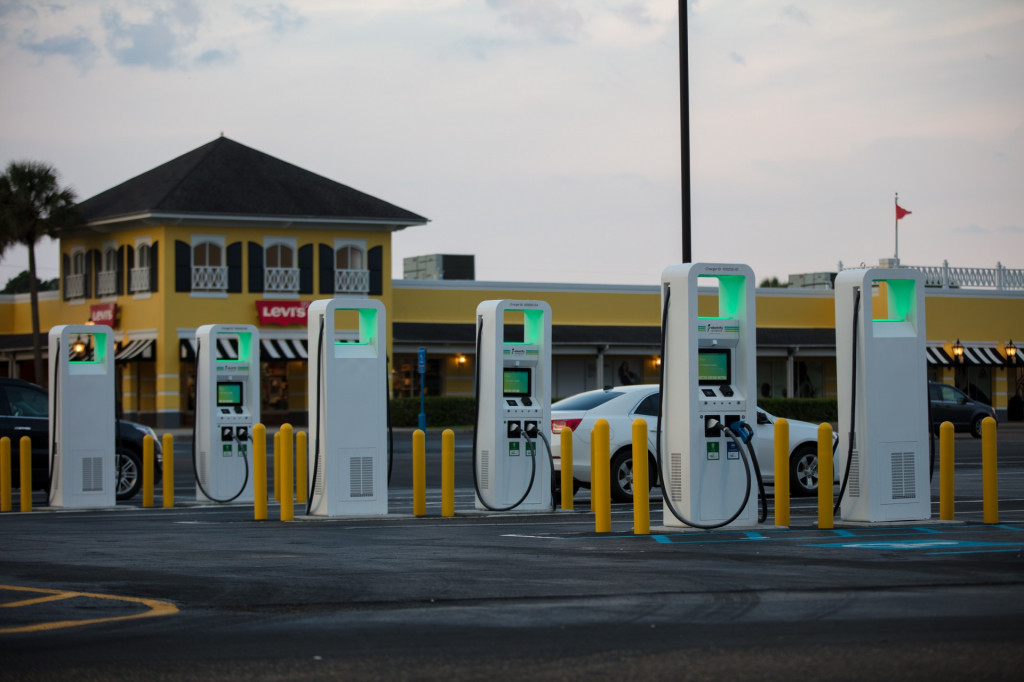The United States is currently trailing behind Europe on electric-car charging infrastructure, but could catch up later this decade, according to a new report.
Research firm Wood Mackenzie released findings Monday predicting that leading markets will install 30 million new charging stations by 2030—the result of the market for public charging shifting from a policy-driven to a profitability-driven footing, the firm said.
Europe will reach that point first, but the U.S. will catch up in the second half of the decade thanks to state (and possibly national) policies, as well as continued utility-backed infrastructure programs, the report said.
In the U.S., utilities are trying to get more involved with charging infrastructure, but are hampered by regulatory boundaries, according to Wood Mackenzie.
China will remain the leader in charging infrastructure through 2030 thanks to robust government backing, the firm predicted.
So far, public policy has helped grow U.S. charging infrastructure. Some states have banded together to make sure infrastructure build-out happens a little more proactively, with 12 Northeast states announcing an initiative to jointly direct infrastructure development in 2018.

Electrify America DC fast chargers in Gulfport, Mississippi
Electrify America's continued expansion of its network, required by the Volkswagen diesel settlement, could help the U.S. catch up right around the time the added public infrastructure is most needed.
The market research firm Wood Mackenzie predicts that home charging will likely be most drivers' preferred charging method, however. By 2030, it expects North American homeowners to have installed 2 million more charging stations than China, and 3 million more than Europe.
That's partly because more Americans live in single-family homes, the firm noted. It's easier to install a charging station at a single-family home than an apartment or condo.
While shelter-in-place orders resulting from the ongoing coronavirus pandemic have delayed installations of new home charging stations, Wood Mackenzie expects them to rise again in 2021.
The firm previously said the pandemic would lower global EV sales by 43% compared to its previous baseline for 2020.
Policymakers, charging providers, and automakers will debate the number of charge points needed per vehicle ad nauseam, but there's still the fundamental chicken-or-egg question of whether charging infrastructure should be built out ahead of sales, or whether stations should be added as sales (and registrations) spike.
